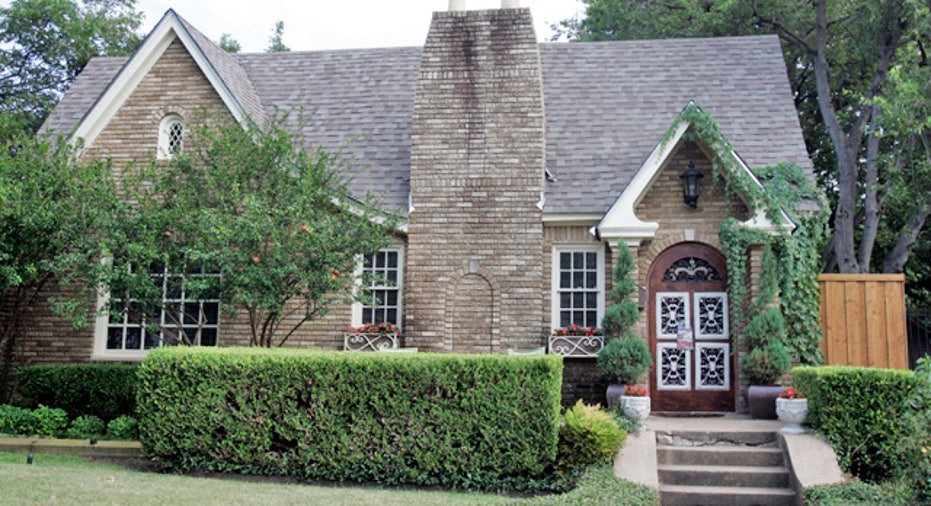After Hurricane Sandy: Public Insurance Adjusters Can Streamline Big Claims

As homeowners assess the damage from Hurricane Sandy, many will be facing the process of filing insurance claims as they try to recoup from the historic storm.
Navigating the claims process -- understanding what a policy covers and how much of a cash payout should be expected -- can be overwhelming, especially after experiencing a natural disaster. One option is to hire a public insurance adjuster (PIA), a licensed middleman who works on your behalf to help determine what you're owed and who works with your insurer to make sure you get it. (See: "The $5,000 gap in your hurricane coverage.")
"Generally speaking, it's a good idea to use a public insurance adjuster, especially if the claim may be $10,000 or more," says David Barrack, the executive director for the National Association of Public Insurance Adjusters (NAPIA). "It's really a judgment call for the policyholder, but we do try to help them get everything that's due."
That second opinion comes with a fee
Barrack explains that public insurance adjusters generally charge about 10% of the final settlement, so you'd pay about $2,000 if your claim settlement is $20,000. If they're able to recoup more than you would by filing a claim by yourself, a public insurance adjuster's service pays for itself.
Lynne McChristian, a spokesperson for the Florida office of the Insurance Information Institute (III), says PIAs may be a good option, but only if you're not satisfied with the settlement offered through your insurer's adjuster. She points out that you're already charged for the insurer's claim adjustment through your premium.
"Give your insurance company the chance to show you how much they are going to give you, especially since you've already shouldered the cost," McChristian says. "If there are concerns with the amount, or other issues, then think about going to a PIA."
However, many public insurance adjusters recommend that you bring them in at the beginning of a large claim, rather than in the middle. That way they can help streamline your claim and paperwork from the start, rather than sorting out problems weeks or months later.
Public insurance adjusters may reduce the stress that comes from filing
Despite the extra cost, a public insurance adjuster may bring peace of mind during times of duress. McChristian, Barrack and Pete Moraga, a spokesperson for the Insurance Information Network of California, agree that a public insurance adjuster could also be useful if the policyholder wants to avoid the stress of making a large or complicated claim alone. (See: "Hurricanes and insurance: 5 must-know facts.")
"Some people may be overwhelmed by the long and arduous task of paperwork, correspondence and phone calls that the process entails, and may want someone else to handle the job," says Moraga.
However, Moraga and the NAPIA are quick to caution people to look for licensed and qualified public insurance adjusters, especially following catastrophes like Hurricane Sandy.
"After major disasters, unlicensed public adjusters and unlicensed contractors descend on the disaster scene to try to rip homeowners off," Moraga says. "This is a very vulnerable time for these homeowners as they are still in shock after losing their home." (See: "5 signs fraudsters have targeted you after a natural disaster.")
Jeanne Salvatore, spokesperson for the III, says homeowners can check with their state department of insurance to determine if a public adjuster is legitimate. The NAPIA can also help you find one, through the public adjuster search feature at its website.
The NAPIA offers a few tips for anyone considering hiring a public insurance adjuster:
- Before you sign anything, ask if the adjuster is licensed, for documentation of his or her experience, for a list of references and if he or she has a website or local office. Check with your state's insurance department to see if he or she has been cited by regulators for poor or unethical performance.
- Be aware that insurers cannot prohibit a home or property owner from using a public insurance adjuster during the claim process.
- Keep in mind that independent adjusters hired by insurers and their own adjusters "represent the interests of the insurance company and do not necessarily represent the interests of the claimant," according to the NAPIA.
- Be aware that some contractors and roofers may say they're licensed public adjusters when they aren't. Again, ask for references and check for the proper credentials.
The III website offers these tips for how to prepare for a claims adjuster visit:
- Prepare an inventory of damaged or destroyed items and give a copy to the adjuster. Don't throw out damaged items until the adjuster has visited. Consider photographing or videotaping the damage.
- If you need to make temporary repairs, keep receipts and give these to the adjuster. Do not make permanent repairs until an adjuster has visited the property.
- Make a list of everything you want to show the adjuster -- for example, cracks in the walls and missing roof tiles. You should also get the electrical system checked. Most insurance companies pay for these inspections, according to the III.
- Get written bids from licensed contractors. The bids should include details of the materials to be used and prices on a line-by-line basis.
- Keep copies of the lists and other documents you submit to your insurance company. Also keep copies of whatever paperwork your insurance company gives you and record the names and phone numbers of everyone to whom you speak.
The original article can be found at Insurance.com:After Hurricane Sandy: Public insurance adjusters can streamline big claims



















